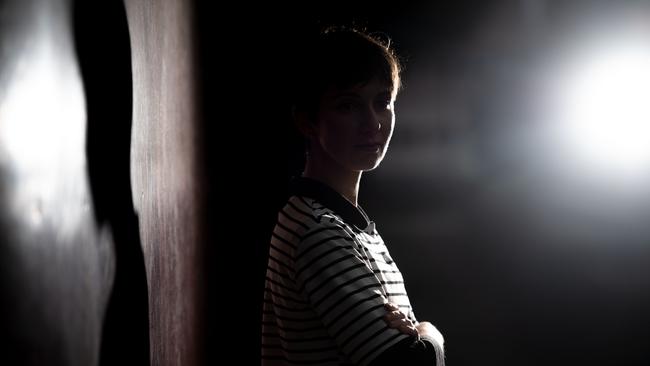Psychiatrists push for inquiry into transgender treatment
A national psychiatrists group has called for a broad inquiry into consent of children to transgender medical treatment.

Doubt about informed consent of children to access transgender medical treatment with uncertain benefits and risks has led the National Association of Practising Psychiatrists to call for a broad inquiry into this global debate.
“What level of maturity, intellectual and emotional, does a child need to be able to make these decisions?” association acting president Philip Morris said.
The group is the first medical body to back the call for a parliamentary inquiry, following a petition to Health Minister Greg Hunt from paediatrician John Whitehall and 257 other doctors.
“When things are controversial, it’s a good idea to shine some light on what the options are for treatment,” said Dr Morris, a practitioner and former academic.
Medical intervention with ever younger children aims to treat the psychiatric disorder of gender dysphoria or distress with one’s biological sex.
In addition to a federal parliamentary probe into issues beyond medicine, the psychiatrists association urges all medical bodies whose members treat under-18s for dysphoria — including GPs, paediatricians, endocrinologists and surgeons — to join forces and draw up nationwide practice guidelines.
Under the internationally dominant “affirmation” model, children are “experts” in their gender identity and puberty blockers are given about age 10 for girls to halt unwanted sexual development, followed by cross-sex hormones and sometimes surgery to mimic an opposite-sex body, with the claim that better mental health outweighs any risks.
Since the 2000s there has been a worldwide surge in teenagers, chiefly girls, identifying as “born in the wrong body”, with many undergoing medical transition, including double mastectomy, and some emerging as regretful “detransitioners”.
In Melbourne, the Royal Children’s Hospital gender clinic, led by paediatrician Michelle Telfer, spearheads the affirmation model in Australia, and the 2018 treatment standards she has promoted as a “national consensus” document claim “increasing evidence” for a confident approach to medical intervention.
But the main psychiatrists’ body, the Royal Australian and New Zealand College of Psychiatrists, last month quietly abandoned its reliance on those RCH standards in its trans health policy. It had done this pending “further review” of the evidence for the standards, RANZCP president John Allan said yesterday.
In August, The Australian reported questions about the claimed national status of the RCH standards, as well as international critics saying the document overplayed evidence and lacked caution.
In its letter to Mr Hunt, the National Association of Practising Psychiatrists expresses concern about a “child’s capacity for informed consent, and the medical risks, known and unknown, of treatment with puberty-blocker drugs, sex hormones and surgery before the age of 18”.
It disputes promotion of puberty blockers as safe and reversible, citing “emerging data” they are “not fully reversible” and have “long-lasting harmful effects”. The permanent harms linked to cross-sex hormones, including infertility, and surgery are better known.
“Some physicians consider (these procedures) for children under age 18 are experimental and should only take place in a clinical trial approved by an ethics committee,” the letter says.
RCH did not consult the RANZCP or the Australian Clinical Psychology Association — whose members typically have key roles in gender centres — during development of the standards.
Following The Australian’s reporting, Mr Hunt in August asked for urgent advice from the Royal Australasian College of Physicians — which covers paediatricians — but critics say the scope of that review is too narrow and the college has a potential conflict of interest because it joined Dr Telfer in lobbying for faster, easier access to medical treatment for trans youth.
RCH, the professional body for gender clinicians AusPATH, and Victoria’s Health Minister Jenny Mikakos — who has claimed the RCH treatment guideline represents “the most stringent safety standards” — ignored requests for comment on Friday.
Last year Dr Telfer said she had sought input on development of the standards from “pretty much everyone I knew working in trans health across Australia and New Zealand”.
“The great thing about having people from across Australia involved in writing (the standards), is that we’ve got a national consensus on how trans kids should be cared for, and it was surprisingly easy for us to do that.”
She said what marked out the RCH standards as different was their consultation of trans families and organisations.
“Not only have we involved (trans) children in writing the guideline and their parents, but we also have really tried to listen to what they’re telling us about how they’d like to be cared for,” she said.
In small print acknowledgments, the RCH standards note the input of gender clinicians across the country, but Dr Telfer and three RCH colleagues are the only named authors of the document, which was published as a peer-reviewed paper by the Medical Journal of Australia.
Victoria’s government has acclaimed the RCH standards as “the world’s most progressive”.




To join the conversation, please log in. Don't have an account? Register
Join the conversation, you are commenting as Logout